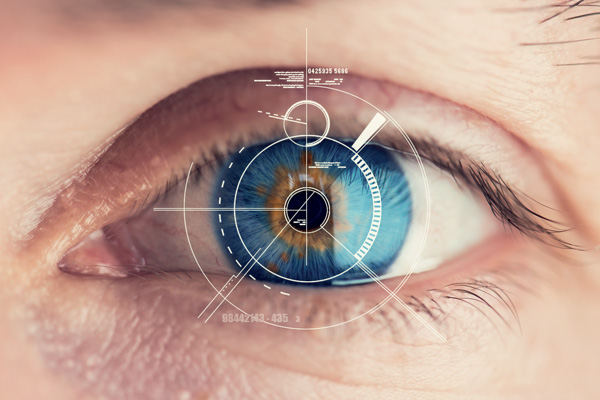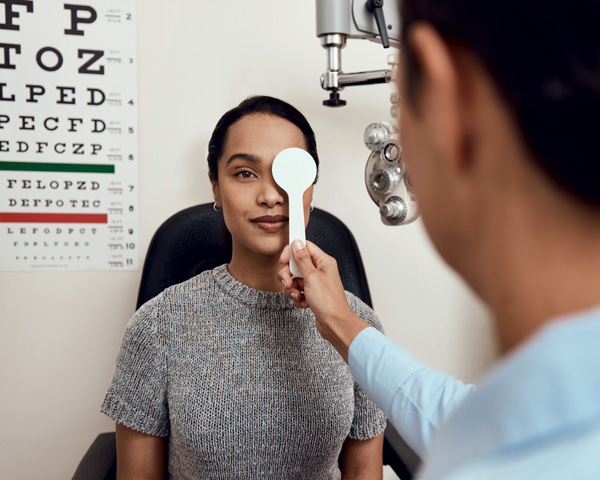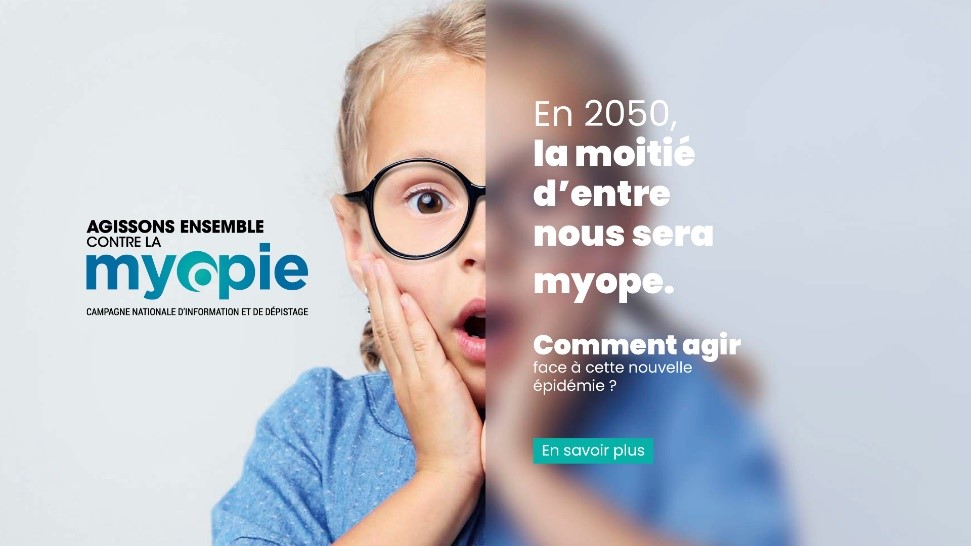
It is important to raise awareness on the “vision health”. A good visual health refers to the proper functioning of one’s vision, which does not require any visual correction. The cornea is not damaged and there are no visual abnormalities, either in close vision, far vision or intermediate vision. This is ensured by regular checks at optical professionals, such as your ophthalmologist, orthoptist, optician, and/or optometrist.
Throughout our lives, many factors will influence our vision. These factors are likely to change and so is our vision. Our visual needs have evolved over time and now more than ever, we need to maintain our visual health.
Our sight, which is increasingly in demand, suffers multiple attacks every day, and the screens are largely responsible for this, especially because of the blue light. Taking care of one’s visual health means protecting oneself from external aggressions that are not natural and that can lead, in the short term, to visual fatigue, headaches, blurred vision or tingling in the eyes because, In the long term, vision health deteriorates and has serious consequences.
Sources : World Health Organization, Helen Keller Europe, Brien Holden Institute, Aveugles de France
When we understand how the eyes work, we understand the importance of maintaining your visual health. Indeed, sight is the most sought-after sense in the life of a human being and allows him to be in communication with his environment (relatives, nature, work), because the image that arrives on a healthy retina allows to send to our brain, through the optic nerve, a precise image with a clear message. We understand then that a good sight means a good quality of life, allowing to fully unfold to enjoy life as it should.
Therefore, it is necessary to take care of our visual capital from childhood, because it is also necessary to know that good vision is essential for a good learning in the youngest children. Indeed, 80% of the information acquired by children goes through sight. Regular eye examinations, for both children and adults, are required to monitor vision health. For this, if you have ocular symptoms (blurred vision, accommodation problems, etc.) make an appointment as soon as possible with your eye specialist.
Moreover, myopia, which has been on the rise in recent years, is considered to be a global pandemic. This is particularly worrisome for younger children, as strong myopia can increase the risk of ocular pathologies (such as cataracts, glaucoma, AMD, or retinal detachment) in adulthood.


That’s why Precilens, French leader in contactology, is committed every day to bringing better being and better seeing through increasingly innovative tailor-made contact lens solutions, including DRL® night lenses (orthokeratology), to correct vision disorders of a person who is myopic, hyperope, astigmatic and/or presbyope, and to ensure visual comfort.
In addition, the laboratory is a partner of the French national myopia information and screening campaign, led by the Institute of Medical Education and Prevention (IEMP), to raise awareness of the importance of preventing the evolution of myopia in children, around a unifying slogan: «Act together against myopia».


